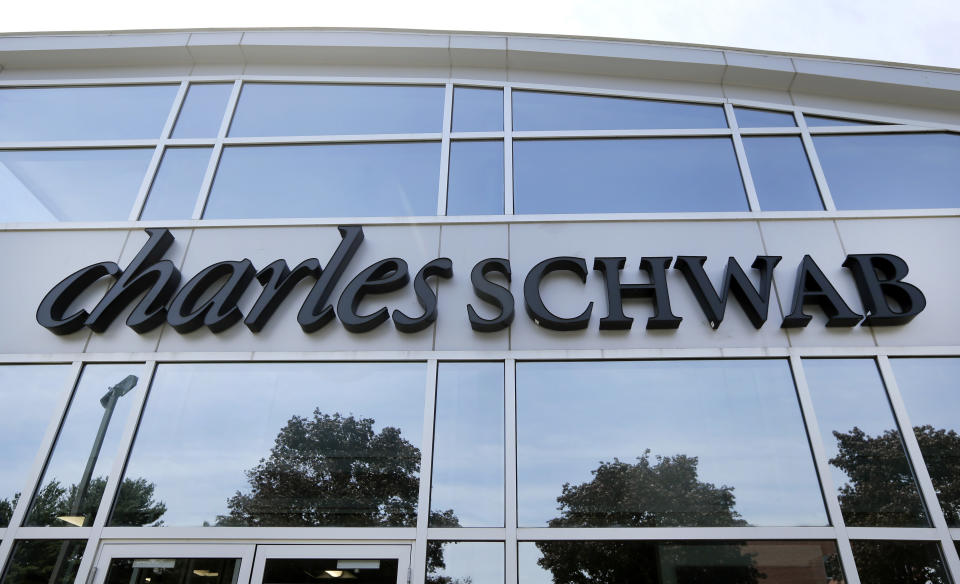Commission free trading is a 'trade war' that helps investors save money but it's not free
The online trading platform Interactive Brokers (IBKR) was the first to eliminate fees and commissions back on September 26 when it announced IBKR Lite and launched a no fee “trade war” that promises to save investors money.
“We kind of kicked it off. Schwab as usual, Schwab gets the credit but we did it first,” said Interactive Brokers Chief Strategist Steve Sosnick. Online brokerages Charles Schwab (SCHW) and TD Ameritrade (AMTD) followed Interactive Brokers’ lead, Sosnick told Yahoo Finance’s On the Move, adding that eliminating fees and commissions was inevitable as firms fight to attract investors.
“This has been something that has been building. This is sort of the inevitable result. We undertook it because we could see the fee pressure coming,” Sosnick said.
Free comes with a price

Schwab CFO Peter Crawford said his firm will lose between $90 million and $100 million in quarterly revenue by eliminating the $4.95 it used to charge investors for each trade. Interactive Brokers Chairman and CEO Thomas Peterffy says his firm will make up the revenue it loses from fees and commissions by selling order flow to market makers.
Interactive Brokers had resisted selling order flow even though other firms did it because Sosnick says selling order flow doesn’t lend itself to price discovery.
“One of the reasons many brokers have been able to keep commissions low, is that when they get an order from you, that’s what we consider a marketable order. The market makers will pay them for that order flow to have the right to see that order first hoping to capture the spread,” Sosnick said.
Selling order flow is legal in the United States as long as firms adhere to U.S. Securities and Exchange Commission’s national best bid and offer guidelines. But Sosnick points out, “In many countries you are not allowed to do this.”
Interactive Brokers is not selling all its order flow, allowing clients with older accounts to opt out. Peterffy outlined the program when he said, “Many brokers sell their clients’ order flow and still charge $4.95 or more to trade stocks and ETFs. With Interactive Brokers, clients can choose to pay no commissions and have their orders routed to market makers like many other retail brokers do or pay Interactive Brokers’ ultra-low commissions and receive professional executions through our IB SmartRoutingSM system."
Sosnick predicts the SEC will pay more attention as brokers sell order flow. “That’s likely to impact volumes and spreads. Because all of the sudden you have less spread discipline enforced in the marketplace because remember the person who is buying the order flow kind of has an advantage to see a wider posted bid offer spread.”
Brokers and exchanges keep track of metrics like volume and bid offer spreads. Sosnick says if market quality declines the SEC will have to act.
“If you see bid offer spreads widen if you see volumes contract if you see price improvement disappear I think the SEC has no choice but to re-examine the plumbing that you don’t really see in the marketplace,” he said.
Adam Shapiro is co-anchor of Yahoo Finance On the Move.
Read the latest financial and business news from Yahoo Finance
Follow Yahoo Finance on Twitter, Facebook, Instagram, Flipboard, LinkedIn, YouTube, and reddit.

 Yahoo Finance
Yahoo Finance 